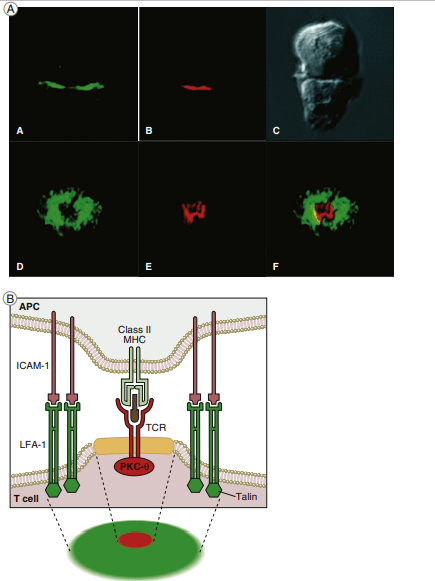Inhibit t cell receptor signaling: Several drugs work by inhibiting T cell signaling and lowering immunological responses. Prophylaxis with cyclosporine A (CsA) is used to avoid organ rejection or severe, active rheumatoid arthritis. CsA is thought to attach to a protein called cyclophilin in the cytoplasm, however, the specific process has yet to be determined. By blocking calcineurin phosphatase, the complex prevents T cells from becoming activated. NFAT is not translocated to the nucleus as a result, and IL-2 is not produced.
Neural, hepatic, and renal toxicity are all significant and life-threatening adverse effects of cyclosporine. Tremors are the most common symptom of neurotoxicity, however, seizures have also been reported. Hepatotoxicity is characterized by cholestasis and hepatocyte damage caused by cyclosporine A. CsA causes dose-dependent vasoconstriction of renal arteries in the kidney, leading to mild-to-moderate renal impairment. Renal dysfunction is characterized by a decreased glomerular filtration rate, increased salt resorption, and hypertension.

CsA has been superseded as an anti-rejection drug by Tacrolimus (FK506). It is ten to one hundred times more active than CsA and has lower toxicity. Tacrolimus interacts with FK506-binding protein 12 (FKBP-12), a cytoplasmic protein that inhibits calcineurin’s function in the calcium–PKC signaling cascade.
Make sure check our other amazing article: Intracellular Signaling pathway